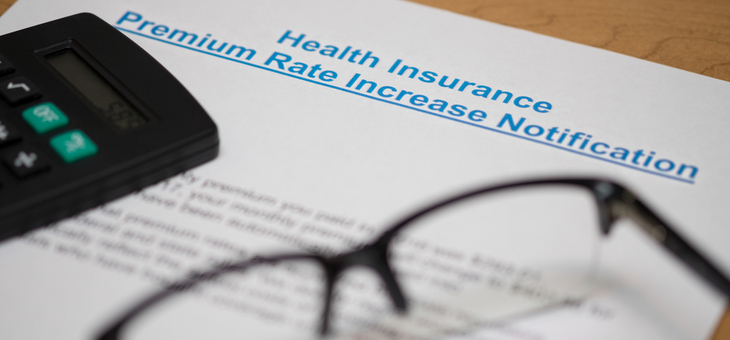Private health insurance needs a “thorough rethink”, according to the Consumers Health Forum (CHF), with premiums at most funds set to rise and thousands of younger people abandoning the sector despite the pandemic.
Due to COVID-19, most health funds deferred increases scheduled for 1 April, but Bupa, Medibank, HCF and nib will lift premiums on 1 October. HBF has cancelled its 2020 price rise. The average increase is 2.92 per cent, although some funds are set to lift premiums by as much as 5.6 per cent.
CHF chief executive Leanne Wells said the pandemic had accentuated the unequal access to healthcare and social support between the haves and the have-nots. “The scrambling for more support for health insurance at this time tells us there are deeper issues of access to healthcare that need to be fixed,” she said.
“The falling demand for health insurance combined with the profound changes to the health system wrought by COVID presented challenges that will not be fixed by seeking cash-strapped 20-somethings to sign up.”
During the pandemic, some elective surgeries have been cancelled and routine services such as dental or eye care have not been available.
The ABC has reported that insurers paid about 12.9 per cent less in hospital benefits in the June quarter. General benefits such as physiotherapy and optical dropped by 32.9 per cent.
Almost 29,000 Australians dropped their cover in the three months to June.
“Australian Prudential Regulation Authority (APRA) figures show in the year to June, 56,000 Australians aged between 20 and 49 dumped their cover, with the report stating ‘the industry continues to face the challenge of falling membership among younger people and growing membership in older age groups’.
“The trend of young people fleeing the sector has been an ongoing concern for those within the system, who fear a ‘death spiral’.
“That’s where young and healthy people continue to abandon private health cover, leaving a larger proportion of less healthy, older and more expensive users.”
Net profit after tax in the private health insurance sector has fallen by 45.3 per cent in the year to June.
Rachel David, chief executive of Private Healthcare Australia, admits the industry has suffered.
“Obviously, the sector has had a very tough quarter and with some of the volatility in the market, the profitability has reduced,” she said.
Private Healthcare Australia’s budget submission paper states: “Providing subsidies to private health insurance is the most cost-effective way for the Australian government to support the growth in hospital and health services over the coming decades.
“Subsidies for private health insurance-funded services cost the commonwealth budget around 30 cents in the dollar. The alternative, providing more services in public hospitals, costs the commonwealth budget 45 cents in the dollar.
“In addition, the government should look at a possible fringe benefits tax exemption for private health insurance premiums for people aged under 40.”
Medibank Private chief executive Craig Drummond says premium increases are essential.
“There are very thin margins and very little scope to provide discounts to everyone,” he told The Sydney Morning Herald and The Age.
“Forgoing a premium increase by funding claims out of surplus equity reserves is unsustainable.”
Mr Drummond said predictions of significant savings during the pandemic had not eventuated. He said insurers had to maintain reserves to pay for elective surgeries that will be undertaken after the pandemic.
On Monday, nib managing director Mark Fitzgibbon told Nine it was tough to predict the impact of the pandemic on the sector in the coming months. He assured members that nib would not look to profit if claims slowed again and would pass on savings.
“If there is a second downturn in treatment as we’ve seen in Victoria, we’ll allow for that in our own pricing,” he said.
Health Insurance Comparison says that five years ago, the average annual family policy cost $4268.90. That family would be paying $5219.09 after 1 October. “That’s an extra $950.19 for a policy that’s essentially the same as it was five years ago,” it says.
You can check your fund’s expected increase here.
Do you intend to review your health insurance because of COVID-19?
Compare Club owns YourLifeChoices and Health Insurance Comparison.
If you enjoy our content, don’t keep it to yourself. Share our free eNews with your friends and encourage them to sign up.
Related articles:
https://www.yourlifechoices.com.au/health/your-health/why-do-you-have-health-insurance
https://www.yourlifechoices.com.au/finance/insurance/alarm-over-health-fund-exclusions
https://www.yourlifechoices.com.au/finance/insurance/health-premiums-should-decline

